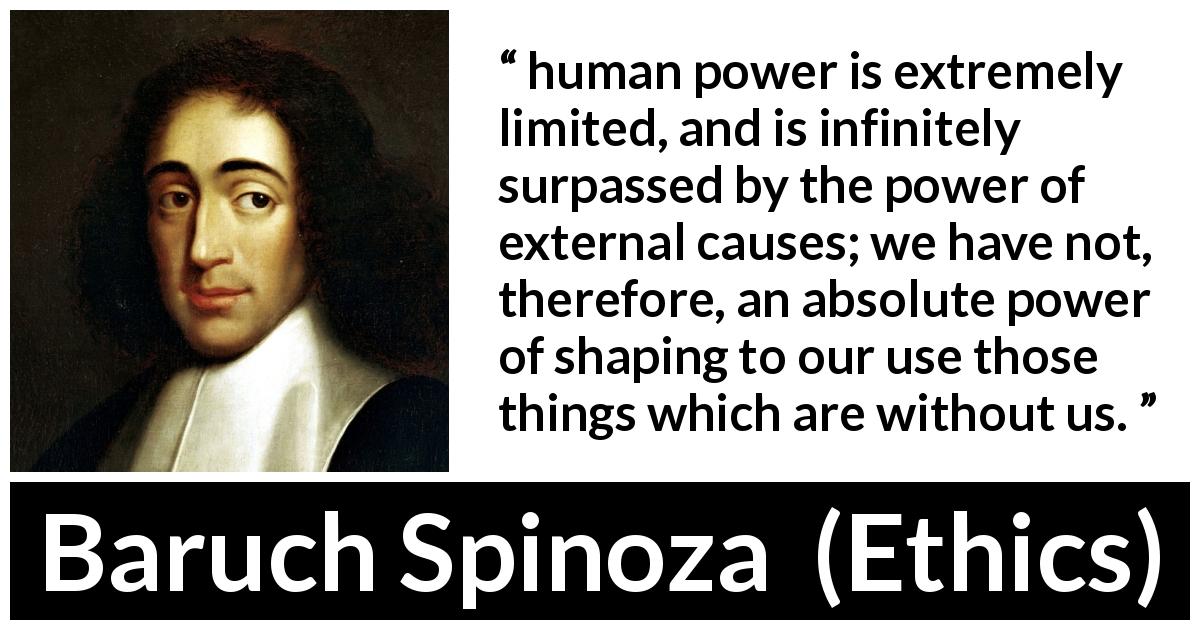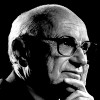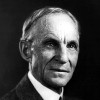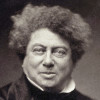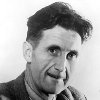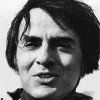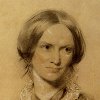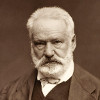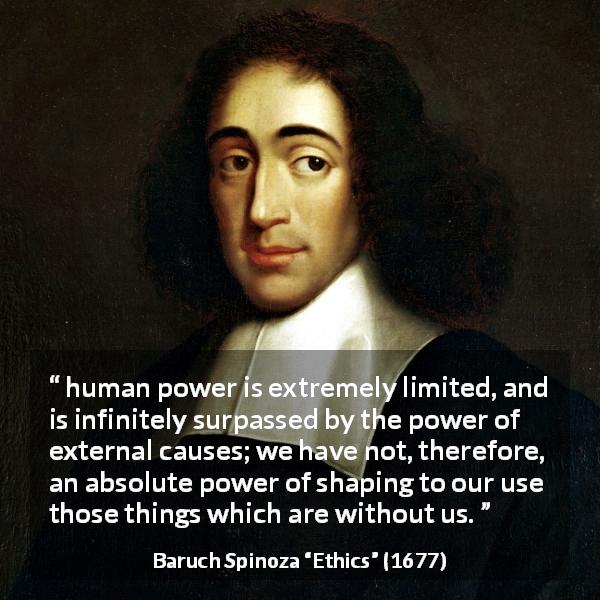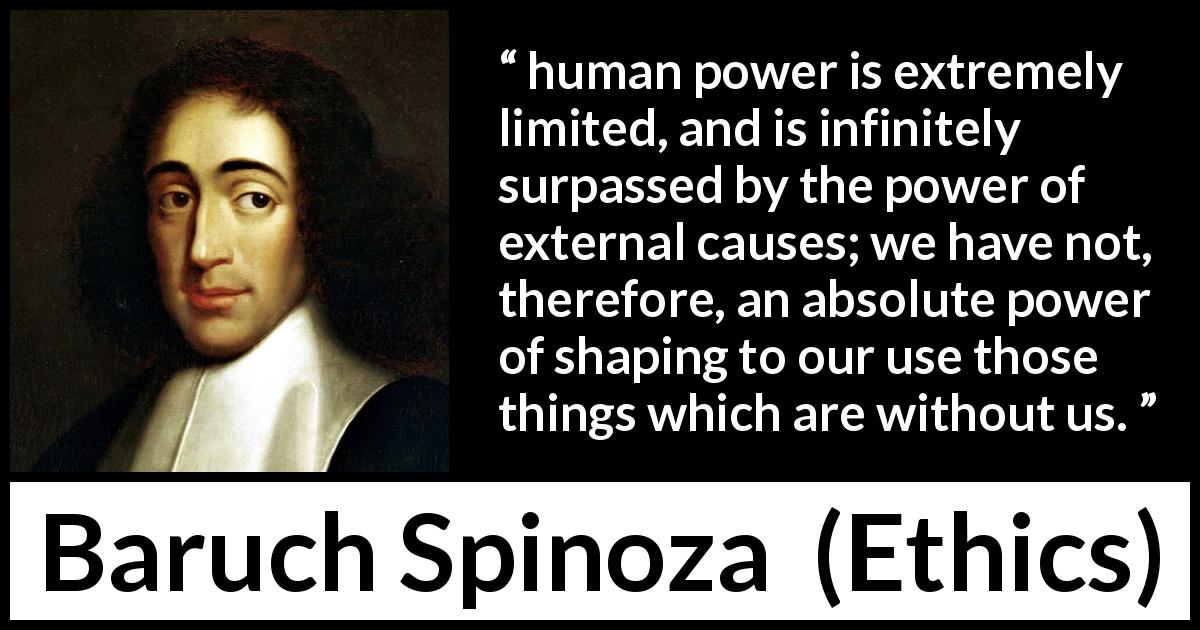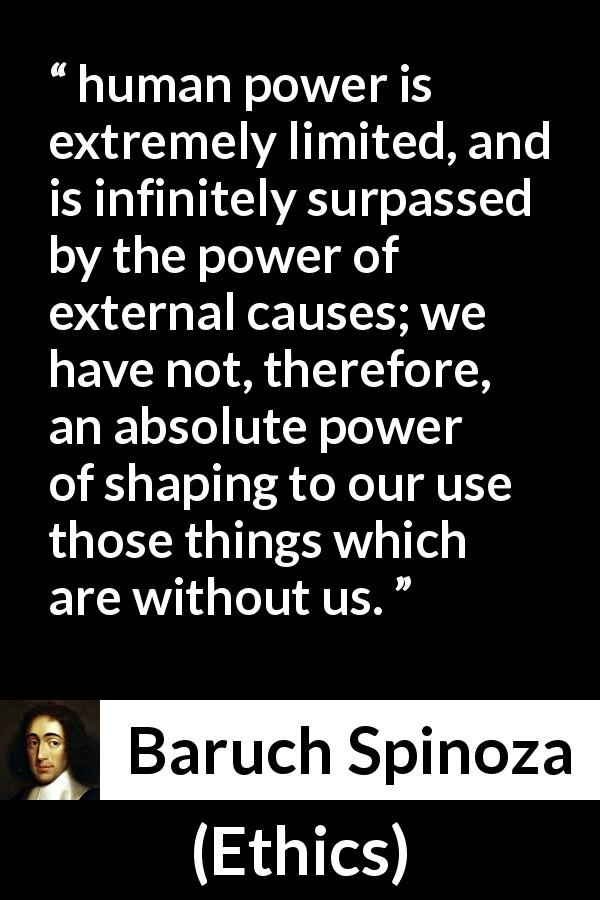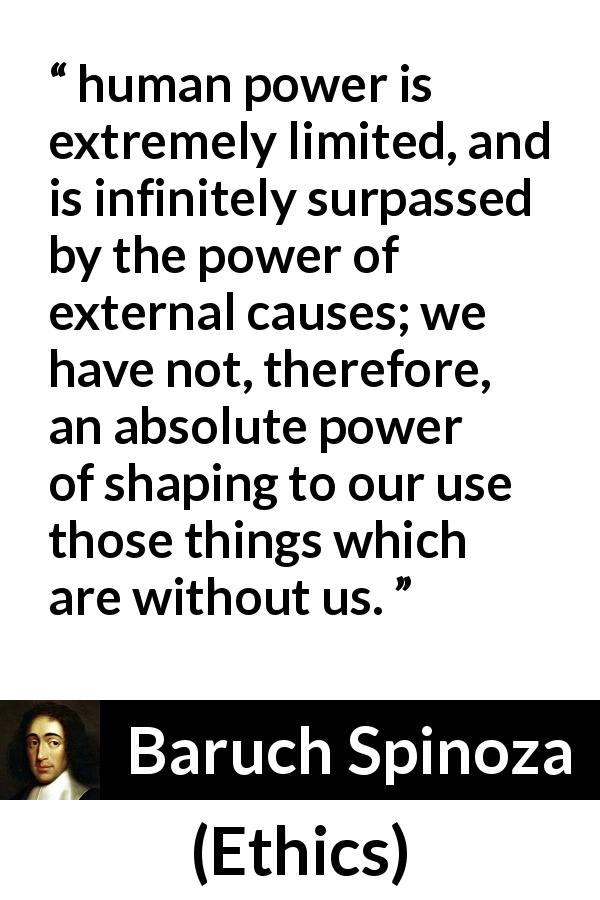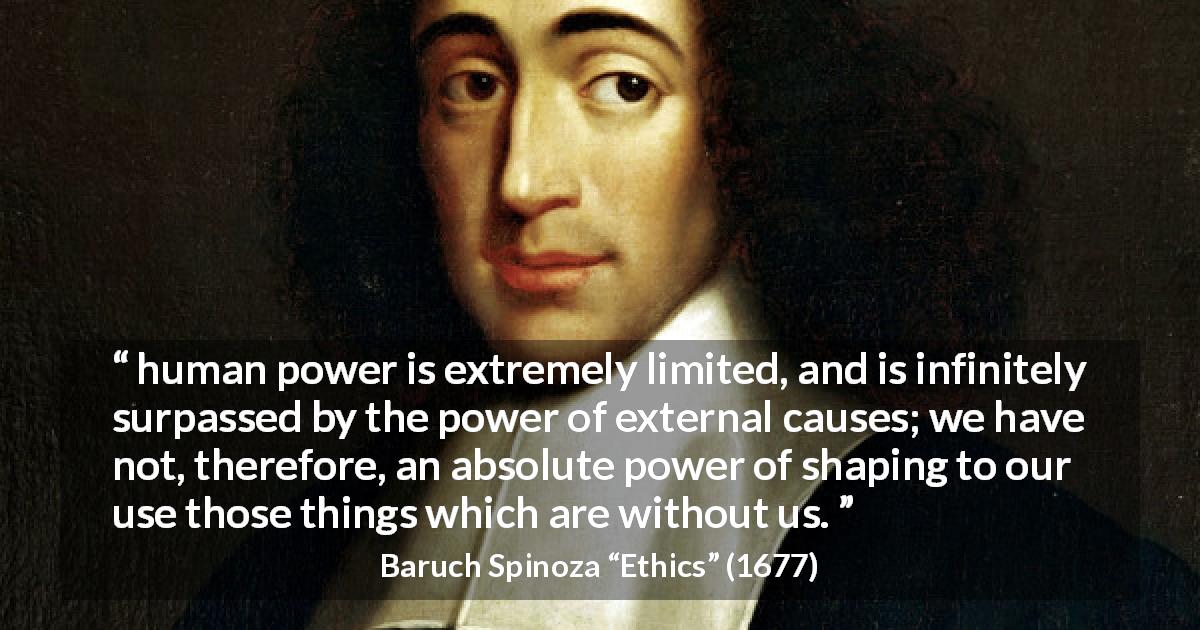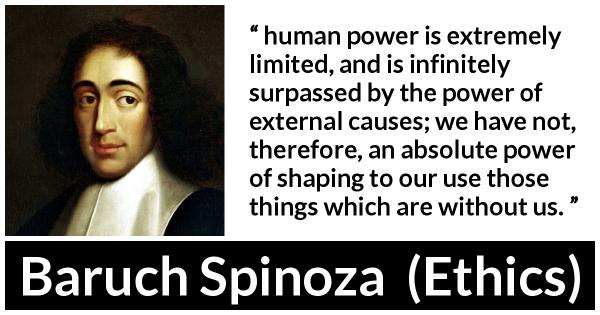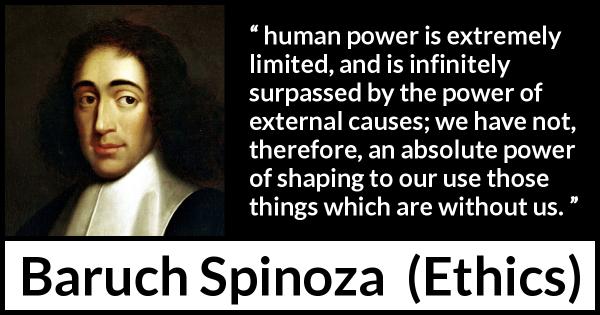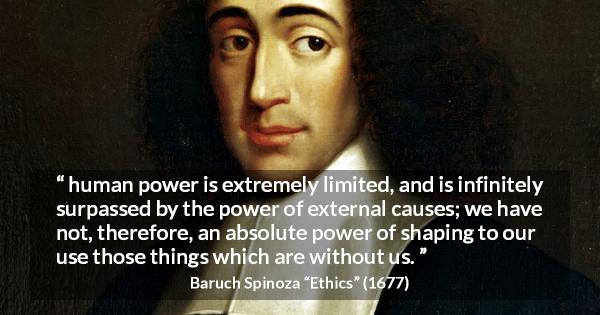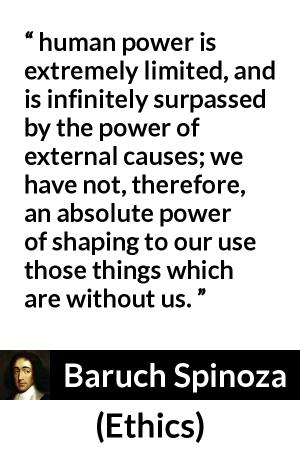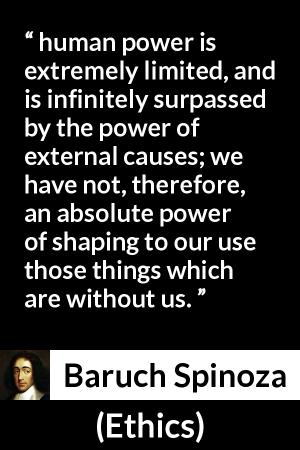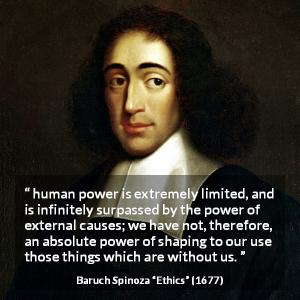“ human power is extremely limited, and is infinitely surpassed by the power of external causes; we have not, therefore, an absolute power of shaping to our use those things which are without us. ”
Baruch Spinoza, Ethics (1677). copy citation
| Author | Baruch Spinoza |
|---|---|
| Source | Ethics |
| Topic | power humanity limits |
| Date | 1677 |
| Language | English |
| Reference | |
| Note | Translated by R. H. M. Elwes |
| Weblink | http://www.gutenberg.org/files/3800/3800-h/3800-h.htm |
Context
“For the greater the pleasure whereby we are affected, the greater is the perfection whereto we pass, and consequently the more do we partake of the divine nature: no pleasure can ever be evil, which is regulated by a true regard for our advantage. But contrariwise he, who is led by fear and does good only to avoid evil, is not guided by reason.
XXXII. But human power is extremely limited, and is infinitely surpassed by the power of external causes; we have not, therefore, an absolute power of shaping to our use those things which are without us. Nevertheless, we shall bear with an equal mind all that happens to us in contravention to the claims of our own advantage, so long as we are conscious, that we have done our duty, and that the power which we possess is not sufficient to enable us to protect ourselves completely; remembering that we are a part of universal nature, and that we follow her order.” source
XXXII. But human power is extremely limited, and is infinitely surpassed by the power of external causes; we have not, therefore, an absolute power of shaping to our use those things which are without us. Nevertheless, we shall bear with an equal mind all that happens to us in contravention to the claims of our own advantage, so long as we are conscious, that we have done our duty, and that the power which we possess is not sufficient to enable us to protect ourselves completely; remembering that we are a part of universal nature, and that we follow her order.” source
